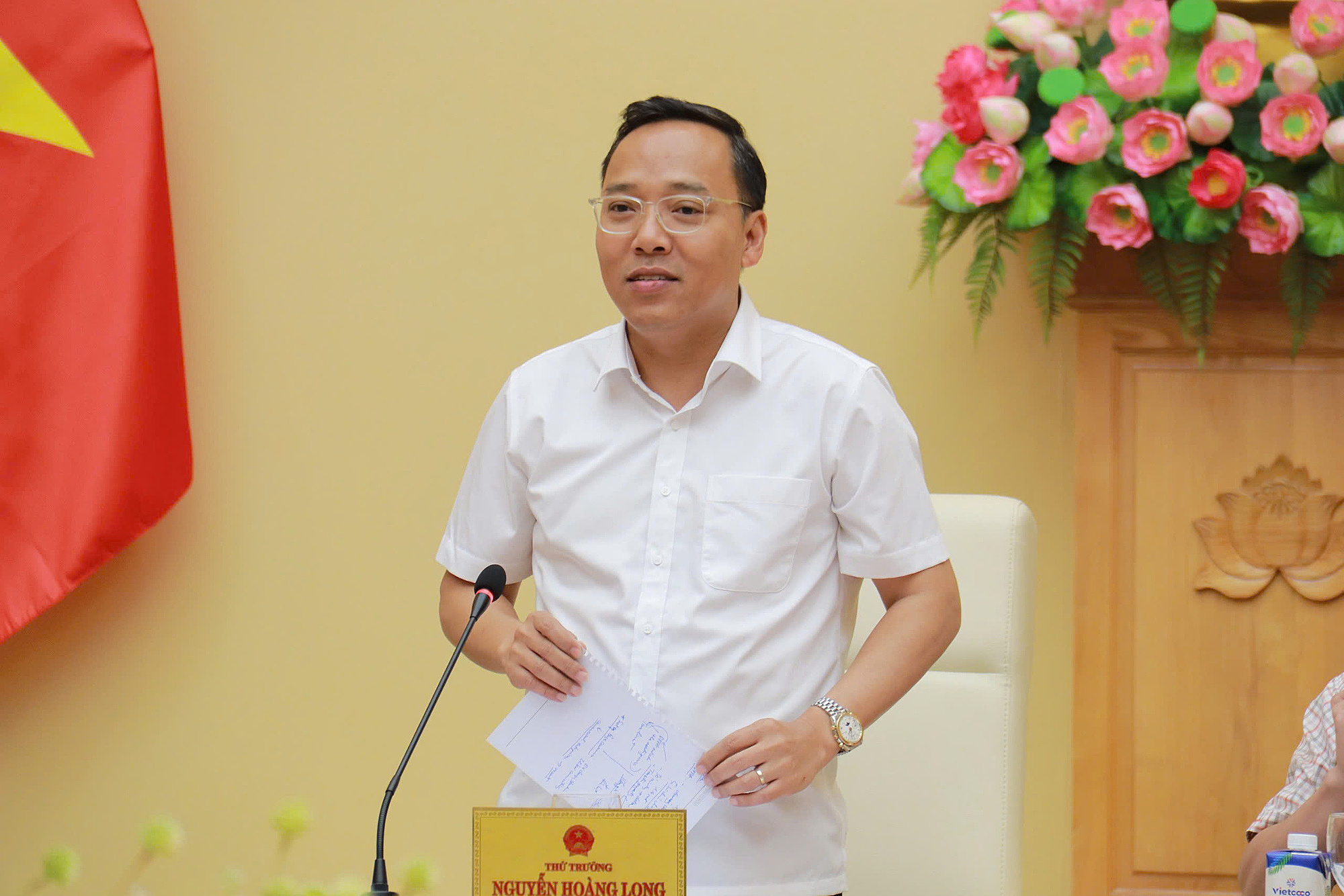The Politburo recently issued Resolution 70 on ensuring national energy security to 2030, with a vision to 2045. At a conference on September 4th to implement this resolution, Deputy Minister of Industry and Trade Nguyen Hoang Long said Vietnam's power system leads ASEAN in total installed capacity, projected to exceed 90,000 MW, placing it among the top 20 countries globally.
However, he stated that to meet high growth requirements, the energy sector, especially electricity, "needs to be one step ahead, creating a foundation for socio-economic development".
 |
Deputy Minister of Industry and Trade Nguyen Hoang Long speaks at the conference to implement Resolution 70, 4/9. Photo: Nguyen Linh |
Deputy Minister of Industry and Trade Nguyen Hoang Long speaks at the conference to implement Resolution 70, 4/9. Photo: Nguyen Linh
After five years of implementing Resolution 55 of the Politburo, energy has maintained stable growth, but limitations remain in institutions, management, and cross-subsidization of electricity prices for some customer groups. Meanwhile, the slow progress of many projects could lead to a power shortage for the upcoming double-digit growth phase.
In Resolution 70, the Politburo sets a target for Vietnam to have a total energy supply of about 150-170 million tons of oil equivalent, a total power source capacity of about 183-236 GW, and electricity output of 560-624 billion kWh by 2030. The proportion of renewable energy in the total energy supply is about 25-30%. Final energy consumption is about 120-130 million tons of oil equivalent.
The resolution also aims to reform the pricing mechanism, moving towards eliminating cross-subsidies between customer groups and regions. To achieve this, Nguyen Anh Tuan, general director of Vietnam Electricity (EVN), suggested that Vietnam needs to quickly apply a two-component electricity pricing mechanism.
Along with that, Vietnam needs to establish a mechanism for mobilizing power sources suitable for energy security, prioritizing baseload power sources (coal, gas) according to specific characteristics, encouraging renewable energy, investing in storage systems, and ensuring transparent and fair participation in the electricity market.
According to Phan Tu Giang, deputy general director of Vietnam National Oil and Gas Group (PVN), Resolution 70 introduces many more flexible mechanisms, facilitating investment and management in the energy sector. PVN's leadership proposed that the Ministry of Industry and Trade continue to advise the government and the National Assembly to soon institutionalize the contents of the resolution.
Meanwhile, Nguyen Duc Ninh, general director of the National System Operation Company (NSMO), said the Politburo's resolution is a framework mechanism, creating a foundation for systematization and opening up directions for subsequent policies.
According to Ninh, challenges for the power system will be concentrated in the 2027-2032 period, with potential difficulties in supply and ensuring energy security. NSMO will implement comprehensive solutions, including supplementing mechanisms for infrastructure construction and developing high-quality human resources. At the same time, NSMO will coordinate with the Ministry of Industry and Trade to implement solutions regarding mechanisms, investment, and planning.
Concluding the meeting, Deputy Minister of Industry and Trade Nguyen Hoang Long said Resolution 70 "is just the beginning, so the spirit must be to act immediately and continuously," removing mechanisms and policies to realize the goals and contribute to ensuring national energy security.
Phuong Dung












